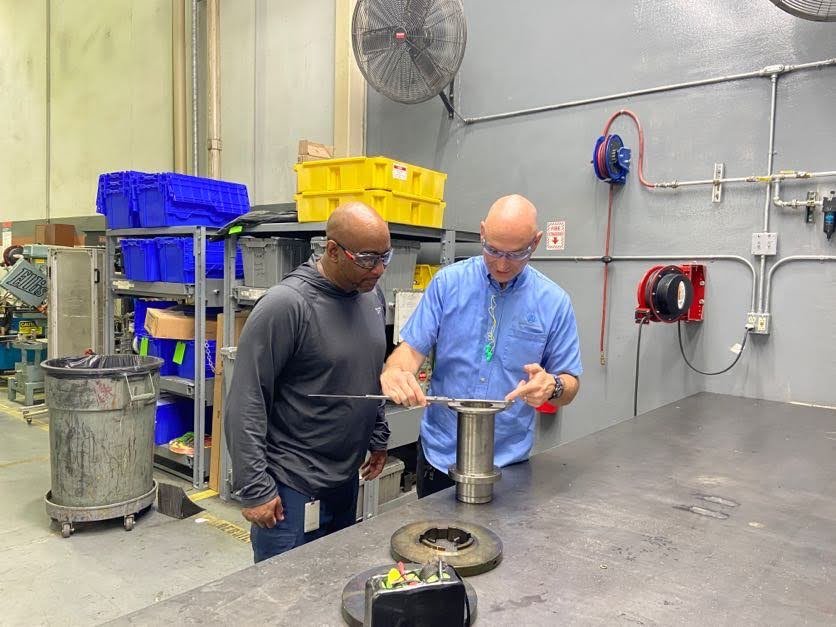How to Source a Precision Machine Shop
When it's time to get a part manufactured, choosing which precision machine shop to work with can be overwhelming.
You may be tempted to select a shop with the lowest prices, but those shops won’t always meet your needs. Finding a shop that is the right match is critical for your part's success.
What factors should you assess apart from cost? This buyer's guide can help you navigate your options.
5 Criteria to Help You Choose a Precision Machine Shop
Considerations like industry, part complexity, volume, and desired level of partnership are important to keep in mind when determining which precision machine shop is best for you.
Here's how we recommend sourcing your shop:
1. Find a shop with the right equipment
The ideal shop will have a wide range of equipment to provide multiple capabilities in-house. Look for a shop that offers comprehensive manufacturing services like CNC milling, wire EDM, waterjet cutting, and grinding.
Depending on your needs, you may also want a shop that offers engineering services and uses advanced technologies like handheld CMMs.
It's important to determine if the equipment a shop uses is compatible with the parts you need made. For example, some instrumentation shops work on parts with extremely tight tolerances, and they only measure in microns. Those shops may not be a good fit for customers whose parts don’t need that degree of precision. Alternatively, if you have a part with tight tolerance specifications, you’ll benefit from choosing a shop with that type of equipment.
2. Ensure your precision machine shop meets quality standards
Quality is non-negotiable when sourcing a precision machine shop. If you need the shop to hold certifications like ISO 9001:2015 for volume work, AS9100 for aerospace parts, HACCP for the foodservice industry, or ITAR for defense projects, ensure that they are adequately certified and adhere to the necessary quality standards.
Another way to assess quality is to see what the shop’s customers say about their work. Read online reviews to get an idea of what to expect from the engagement. If possible, look at samples of parts they’ve made that are similar to your part to verify that the shop can deliver on your requirements.
3. Understand the shop’s quantity limitations
Whether you need a one-off part or a run of 20,000 pieces each month matters when sourcing a shop. Most shops have a quantity sweet spot, determined by factors like automation and the sophistication and size of their machines.
Here are some questions you could ask to understand quantity limitations:
What is your sweet spot in terms of volume?
Do you have part minimums/maximums?
Are you able to handle the volume of my order?
A trustworthy, confident shop will be honest about what they do best. At our machine shop in Georgia, we aren't afraid to tell customers we aren’t the right fit when it's clear we can't do our best work for them.
4. Consider the shop's longevity
Ideally, a customer should be able to return to the same shop in five years to remake a part without having to reinvent the wheel. If you hope to build a strong and collaborative relationship with your shop, you’ll want to be sure they have a solid reputation and will stay in business for the foreseeable future.
When shops close suddenly, you risk losing vital knowledge about your part as well as any components they kept in stock for you. Try to avoid this headache at all costs.
5. Check that the shop’s business practices and logistics align with your needs
You might not think a precision machine shop's hours are important at first, but what happens if you need an immediate repair or have another urgent request? If you work in a fast-paced environment and need quick-turn manufacturing services, you’ll want to work with a shop that provides fast quotes and runs parts on nights and weekends.
If you need complex parts on a consistent basis and want to develop a collaborative relationship with your precision machine shop, request a quote from Arbiser Machine today!


